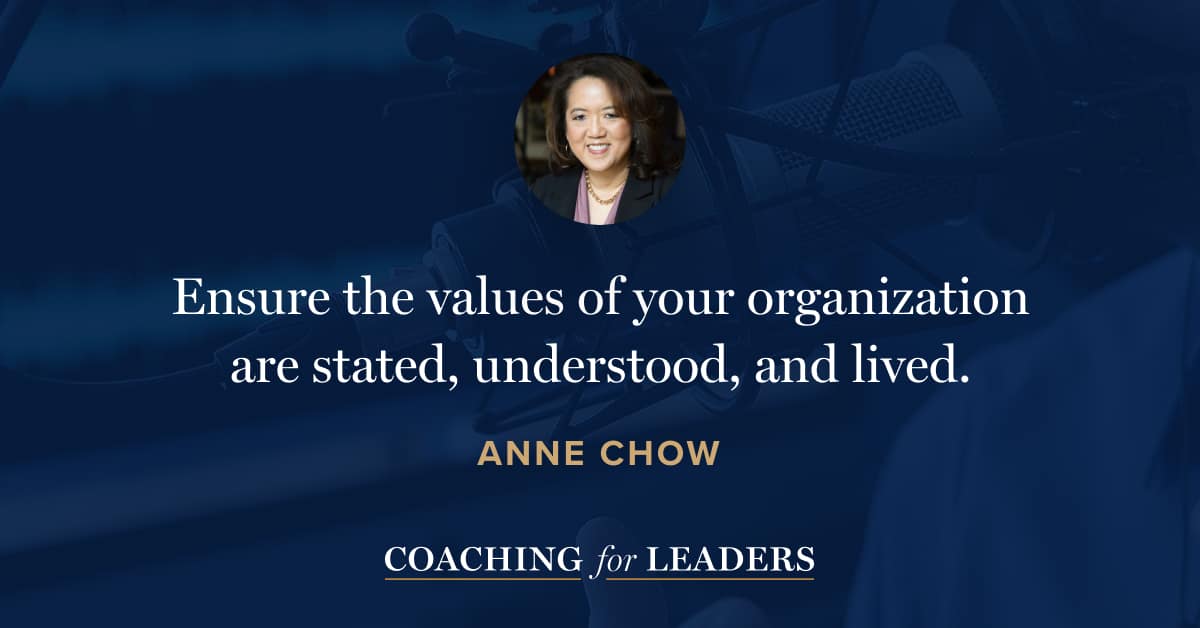Anne Chow: Lead Bigger
Anne Chow was the CEO of AT&T Business and the first woman of color CEO in AT&T’s 140+ year history, responsible for leading a $35B global operating unit of over 35,000 people. She was named to Fortune’s Most Powerful Women in Business twice and today serves on a number of boards, including FranklinCovey, 3M, and CSX. She is the author of Lead Bigger: The Transformative Power of Inclusion.
We all know the importance of values, but it’s often hard to know where to begin when clarifying them with a team. In this conversation, Anne and I explore how to align on values that support a great culture and move towards a vision.
Key Points
- Values and ideologies are distinct. Leading bigger means honoring diverse ideologies while aligning on core values.
- Bigger leaders have the courage to admit and cite situations where they fall short.
- When asking people to craft values, invite them to start by individually considering their personal values.
- When discussing values as a group, highlight both the common agreements and also the outlying ideas.
- Leaders must ultimately decide which values best embody the culture and vision of their organization.
- Bring in different stakeholders to do a gut check on whether the values are legitimate.
- Measure behaviors against values and review and update values and metrics regularly.
Resources Mentioned
- Lead Bigger: The Transformative Power of Inclusion by Anne Chow
Interview Notes
Download my interview notes in PDF format (free membership required).
Related Episodes
- How to Create Team Guidelines, with Susan Gerke (episode 192)
- How to Discover What Others Value, with Joe Hart (episode 616)
- How to Prevent a Team From Repeating Mistakes, with Robert “Cujo” Teschner (episode 660)
Discover More
Activate your free membership for full access to the entire library of interviews since 2011, searchable by topic. To accelerate your learning, uncover more inside Coaching for Leaders Plus.





